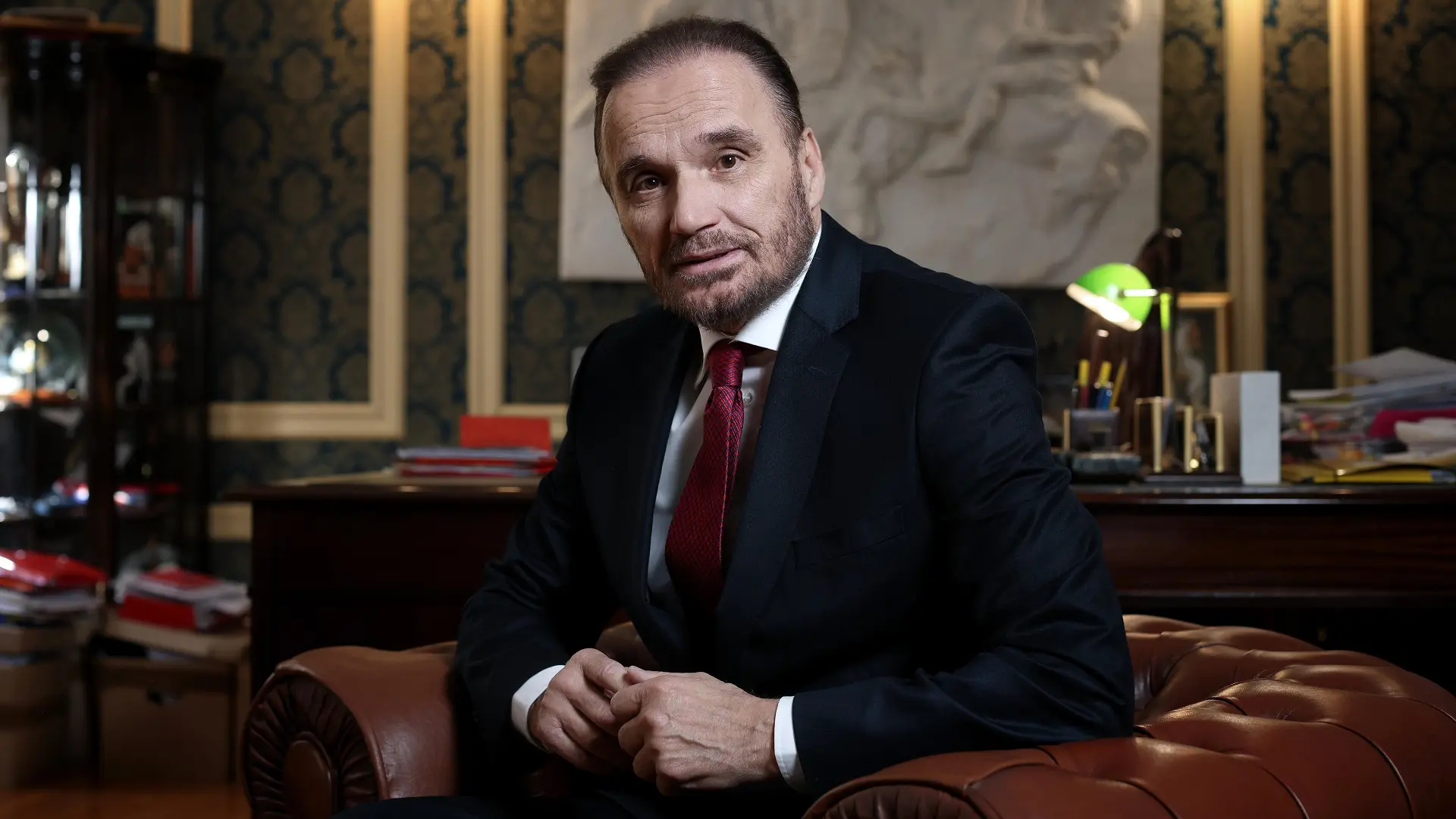The following analysis by Poskok.info which is is well respected Croatian web portal in Bosnia and Herzegovina, clearly demonstrates that Christian Schmidt has violated the Dayton Agreement while committing multiple other offenses prosecutable under international law. In essence, he has, on behalf of the citizens of Republika Srpska, indicted Milorad Dodik by stripping them of their constitutional right to enact their own Criminal Code. In short, he has begun doing to Serbs what Petritsch and Ashdown had already done to Croats.
1. The legal framework of the Dayton Peace Agreement
The Dayton Peace Agreement (DPA) consists of 11 annexes, with Annex IV being the Constitution of Bosnia and Herzegovina. This document clearly defines the competencies of BiH institutions, including legislative and judicial powers.
The BiH Constitution does not grant the High Representative the power to impose laws, as legislative authority is exclusively assigned to the BiH Parliamentary Assembly.
1.1. Article III of the BiH Constitution: Competencies and relations between BiH institutions and entities
- Paragraph 1 explicitly states that BiH’s exclusive competencies include foreign policy, customs, monetary policy, and international law.
- Paragraph 2 stipulates that all competencies not explicitly assigned to BiH institutions belong to the entities.
- Paragraph 3 regulates the legislative process, clearly establishing that laws can only be enacted by the BiH Parliamentary Assembly.
This means that the High Representative cannot amend the Criminal Code of BiH, as this would constitute a direct usurpation of powers designated to legitimate institutions.
1.2. Article VI of the BiH Constitution: Judicial authority
The Constitutional Court of BiH interprets the Constitution and ensures its implementation. Nowhere is the High Representative granted the authority to amend the Criminal Code or impose legal acts.
2. The Bonn Powers – A political act without legal basis
The Bonn Powers (1997) are not part of the Dayton Agreement. They were introduced by representatives of the Peace Implementation Council (PIC) without formal ratification by any parliament, including the BiH Parliamentary Assembly or the parliaments of the Dayton signatory states.
Not only do the Bonn Powers lack formal legal legitimacy, but they were also never adopted through any international treaty, meaning that they are legally invalid under international law.
3. Schmidt’s violations of international law
- The Dayton Agreement does not grant the High Representative legislative authority.
- The Bonn Powers are legally invalid since they were never ratified by the BiH Parliament.
- By imposing amendments to the BiH Criminal Code, Schmidt has violated BiH sovereignty (Article 2 of the UN Charter).
- Interfering in the state’s legislative system without a UN mandate or BiH Parliamentary approval constitutes a violation of international law (Article 1 of the International Covenant on Civil and Political Rights).
4. What can BiH do?
Bosnia and Herzegovina can take international legal action against Schmidt through the following mechanisms:
4.1. Lawsuit before the International Court of Justice (ICJ)
The ICJ has jurisdiction over disputes between states. BiH can sue Germany as the state that appointed Schmidt, arguing that his actions violate international law and BiH’s sovereignty.
4.2. Lawsuit before the European Court of Human Rights (ECHR)
BiH citizens can file a lawsuit against Schmidt for violating their right to democratic decision-making, as his imposition of laws directly contravenes the principles of legal certainty and democracy.
4.3. Lawsuit before the International Criminal Court (ICC)
If Schmidt’s actions lead to systematic abuse of power, a case could be established before the ICC for political repression and the imposition of laws without legal grounds.
Schmidt has nullified the citizens’ right to determine their own laws and unlawfully indicted Dodik
By imposing amendments to the BiH Criminal Code, High Representative Christian Schmidt has assumed powers not granted to him under the Dayton Agreement, undermined the democratic process in BiH, and directly violated the sovereignty of its citizens—both in the Federation of BiH and in Republika Srpska.
1. Schmidt has overridden the rights of citizens and Parliament
The BiH Criminal Code, as a fundamental state law, can only be amended through the legislative process in the BiH Parliamentary Assembly. However, Schmidt bypassed this process, made an independent decision, and completely eliminated the right of democratically elected BiH representatives to regulate criminal norms.
By doing so, he has:
- Undermined BiH institutions and nullified the role of Parliament.
- Prevented BiH citizens from amending the Criminal Code through their elected representatives.
- Directly influenced the judiciary by creating a legal basis for a political case against Milorad Dodik and Republika Srpska authorities.
2. Schmidt has erased Republika Srpska’s jurisdiction over criminal law with a single decision
According to Article III of the BiH Constitution, entities hold jurisdiction over all matters not explicitly assigned to BiH. Since the Constitution does not mention criminal law at the state level, Republika Srpska has the right to enact its own criminal laws, and any amendments to the BiH Criminal Code must be agreed upon through legitimate institutions, not imposed by an international bureaucrat.
Schmidt has:
- Stripped the National Assembly of Republika Srpska of its role in shaping criminal legislation.
- Usurped the powers of BiH and entity legislators.
- Created a legal precedent that allows the OHR to directly prosecute RS political representatives.
3. Schmidt indicted Dodik on behalf of citizens whom he deprived of decision-making power
Schmidt has not only violated Dayton but has also directly shaped judicial proceedings in BiH by making Dodik’s indictment inevitable.
By indicting Dodik based on Schmidt’s amendments, the BiH Prosecutor’s Office is not enforcing a law passed by a legitimate government body, but rather a law illegally imposed by Schmidt.
This has:
- Created legal uncertainty—if the High Representative can amend criminal laws without Parliament, then no law in BiH is secure.
- Politicized the judiciary—court cases now depend on OHR’s will rather than laws enacted by the BiH Parliament.
- Set a precedent where OHR can impose criminal sanctions against any politician or citizen in BiH without democratic legitimacy.
What legal steps can BiH and Republika Srpska take against Schmidt?
4.1. ICJ lawsuit against Germany
BiH can sue Germany for appointing Schmidt without UN Security Council approval, thereby violating international law.
4.2. ECHR lawsuit against OHR
BiH citizens can sue OHR for violating their democratic right to legislate through Parliament, which is contrary to the European Convention on Human Rights.
4.3. Political blockade of OHR decisions at the BiH level
Republika Srpska can:
- Pass a law nullifying Schmidt’s decisions within its territory.
- Initiate a process within the UN to formally challenge Schmidt’s authority.
Conclusion: Schmidt is unlawfully imposing laws and shaping political prosecutions
Schmidt has not only violated the Dayton Agreement but has illegally amended the BiH Criminal Code, thereby eliminating the right of citizens and democratic institutions to legislate.
His decision is entirely politically motivated, as it has created the legal basis for Dodik’s prosecution without democratic legitimacy.
BiH, and especially Republika Srpska, have legal mechanisms to challenge Schmidt’s actions at international courts and protect their sovereignty. The key actions include:
- Filing an ICJ lawsuit against Germany
- Legal action before the ECHR
- Political and legal measures to reject Schmidt’s jurisdiction in Republika Srpska
The fight for legal sovereignty must begin now.
Source: Poskok.info









